Last updated on Oct 15, 2025
How to Write a Book (with Tactics from Bestsellers)
Martin Cavannagh
Head of Content at Reedsy, Martin has spent over eight years helping writers turn their ambitions into reality. As a voice in the indie publishing space, he has written for a number of outlets and spoken at conferences, including the 2024 Writers Summit at the London Book Fair.
View profile →What’s the secret formula to tapping into your creativity and writing a book? Some authors would tell you there is no single path to authorship, as every writer’s journey is unique. However, almost every bestselling author will have highly effective writing patterns and habits that help them develop their ideas, organize their thoughts, and attain their writing dreams. In this post, we'll share some of their most commonly used tactics for starting and finishing a book.
How to write a book:
- 1. Start with a book idea you love
- 2. Research by reading genre-prominent books
- 3. Outline the story
- 4. Write the opening sentence
- 5. Write the first draft
- 6. Set a schedule with achievable goals
- 7. Find a good writing space
- 8. Pick a "distraction-free" writing software
- 9. Finish your draft
- 10. Edit the manuscript
- 11. Publish your book for readers to buy
There's a long, exciting road ahead. So let's get started.
1. Start with a book idea you love
The one thing you absolutely need to write a book is, of course, an idea. If you don't have that, you'll never get past the first page of your draft.
You may already know what you want to write about, or you may be at a total loss. Either way, you can settle on a “big book idea” by asking yourself a few simple questions:
- What do I want to write about?
- What do I feel is important to write about?
- Who will want to read about this story/subject?
- Will I be able to carry out this idea effectively?
Your answers to these questions will help you narrow it down to your best options. For example, if you have several different ideas for a book, but only one that you're truly passionate about and feel you can pull off, then voilà — there's your premise!
Q: How can I overcome the fear that my story idea isn’t original or good enough?
Suggested answer
It's easy to walk into a bookstore, pull a finished book off the shelf, read it, and think, "Oh no. I could never write a book like this. I'm not good enough to be a writer."
This kind of thinking is a trap! As an editor, I've read hundreds of early drafts. Even the most exciting, most polished manuscripts that passed my desk needed several rounds of intense editing before they were ready for publication. And I was often seeing manuscripts after they had been through a few revisions already. It's not fair to compare your first draft to a published book that's been through many rounds of professional editing. Everyone's first draft needs work. If you expect your first draft to be on the same level as a published book, then you're going to set yourself up for a lot of self-doubt and disappointment.
However, when you pick up a book and think I could never write this, that's actually true. Not because you're a bad writer, but because your voice is uniquely and distinctively yours. You won't be the next Rick Riordan or the next Angie Thomas--but that's because you're going to be the next you!
Camille is available to hire on Reedsy ⏺
Even seasoned authors struggle with imposter syndrome and doubt themselves. That said, doing your homework is not a bad idea. Find out what books are similar to yours and find out if there is a glut in the market for that topic or if there is a need or hole in the market, and your book might fill a need.
The reality is that good books are not written; they are rewritten. That's why it is so important to work with an editor who can help you revise the book and take it to the next level, so it can become the best it can be.
Melody is available to hire on Reedsy ⏺
On the other hand, if you lack ideas, these questions should steer you in a firmer direction. Think about the kinds of books you love to read, as well as books that have made a significant impact on you. In all likelihood, you'll want to write a book in a similar vein.
Tools to help you find an idea
If you're grasping at straws, consider free-writing based on a writing prompt or generating a story via a plot generator to get the ball rolling! You might stumble upon an interesting concept or story element that sparks a “big idea” for your book. (And if you're still uninspired even after trying these tools, you may want to reconsider whether you really want to write a book after all.)
2. Research by reading genre-prominent books
Once you've found your big idea, the next step is to research your genre. Again, if you're writing the book you like to read, you already have a leg up! Reading books in your genre is by far the best way to learn how to write in that genre yourself.
But if not, you'll want to select a couple of representative titles and analyze them. How long are the novels and how many chapters do they have? What does the shape of the story look like? What themes and ideas pull the book together? Perhaps most importantly, do you think you can produce a book with similar elements?
Find out what people are reading
You should also conduct market research on Amazon to determine the most popular books in your genre. If you want your book to succeed, you'll have to contend with these bestsellers. Go to the Amazon Best Sellers page and find your genre in the lefthand sidebar:
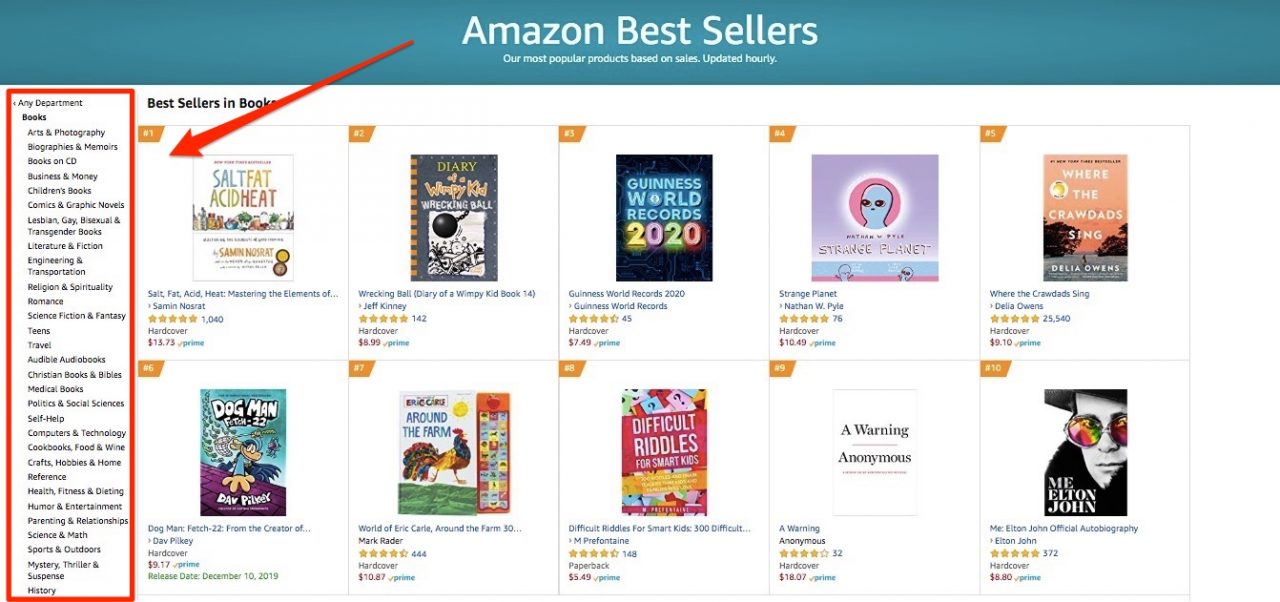
Then read those books' blurbs to figure out what really sells. What do they all have in common, and why might readers find them appealing? Does your book hold up to these standards?
Finally, think about how your book can offer something NEW. For example, if you're writing a psychological thriller, will there be a particularly sneaky narrator who's unreliable, or maybe a series of twists and turns that the reader never sees coming? If your book is nonfiction, do you have a unique take on the subject, or a particularly deep well of knowledge? And so on.
Q: How do I choose the right genre for my book?
Suggested answer
My advice is to not worry about genre until you've written the manuscript. This way, you're writing with the passion you have for the story you want to tell, rather than trying to conform to the expectations of a certain genre that your story may or may not fit into. It complicates the drafting process.
When you're finished drafting, think about the kinds of books you've read that seem similar in style, tone, voice, pacing, structure, themes, etc. What bookshelves are they sitting on? What are they listed under on Amazon and Goodreads? Google them, like this: What genre is [Title of Book] by [Author Name]? You might get a few different genres in the search results, and that's ok. Once you have a list of possible books with an established pattern of genres, you can start to narrow down where yours might sit.
Research the traditional elements, themes, and expectations of that genre. Does yours contain those same qualities? We also tend to write stories in the same style as some of our favourite authors and books that we gravitate toward, so take a look at some of their books. Does it seem to have some similarities?
Once you nail down some good comparable titles, you'll be able to narrow down your story's genre. Don't compare the plot; instead, look for story elements. If you'll be pitching your book to agents, you'll want to choose two strong comp titles (with author names) to use in the query letter, and the genre of these books typically must match the genre in which you're pitching your book. This helps the agent determine what kind of a story they're in for as they get into the plot paragraphs and allows them to envision where it might sit on bookshelves. This can also be useful for marketing purposes when it comes time.
So: story first, genre later!
Kathleen is available to hire on Reedsy ⏺
There are two ways to look at this. First, you want to play to your strengths. Have you gotten good feedback for your fantasy stories? What genre is easiest for you to plot and write in? What genre gets you excited?
Second, you want to "go where they are not." This was advice received from young adult author and multiple award-winner, Richard Peck when attending a writing retreat. If there is a glut of westerns in the market, for instance, with lots of competition, you may want to steer clear of this genre. However, if this genre has books flying off the shelves and selling like hot cakes, it might be time to throw your hat in the ring if this is something you enjoy writing.
Overall, writers tend to do better when they write what they know and read, and write stories they really want to tell.
Finally, another question to ask yourself is, "What is the story only I can write?" And then try writing that story.
Melody is available to hire on Reedsy ⏺
Going above and beyond is the only way to give your book a chance in today's hyper-competitive market. So don't skimp on the genre research, because this will tell you where the bar is and how you can surpass it.
3. Outline the story

Many great stories begin with a great outline. This is especially important if it's your first book, since you need a solid blueprint to rely on when you get stuck! (Because believe us, you will get stuck.)
Q: What outlining techniques can 'pantsers' use to guide their storytelling without stifling creativity?
Suggested answer
Even having a very basic three-part/three-act overview of the story with just one page of notes per act will help you stay on course when drafting, so the finer details can emerge while you write. You want to know at least how the story ends, and then drive forward toward that ending. The ending doesn't have to be too specific, again, as details may arise while crafting the story, but knowing if it will be a tragedy or have a positive outcome at the end should help to drive the narrative forward.
Melody is available to hire on Reedsy ⏺
So how do you go about creating that outline for your book? We actually have a whole other post on the subject, but here are the essentials:
- Pick a format that works for you. There are so many different types of outlines: the free-flowing mind map, the rigorous chapter-and-scene outline, the character-based outline, and so on. If one approach doesn't work for you, try another! Any kind of plan is better than none.
- Have a beginning, middle, and end. Way too many authors go into writing a book with a strong notion of how their story should start... yet their middle is murky and their ending, nonexistent. Take this time to flesh them out and connect them to one another. Remember: the best books have endings that feel “earned,” so you should try to be building toward it from the start!
- Consider your conflict points. Conflict is at the heart of any good book — it draws in the reader, conjures tension and emotion, and ultimately reflects the themes and/or message you want to convey. You don't have to know exactly where your conflict will manifest, but you should have a pretty good grasp of how it works throughout your book.
- Get to know your characters. If you haven't spent much time shaping your characters yet, your outline is the perfect opportunity to do so. How will your characters interact in the story, and how will these interactions demonstrate who they are and what matters to them?
If you'd like to outline your story directly in a writing app, we recommend using the pre-made templates in the free Reedsy Studio. Simply create your account with one click below and start creating the building blocks of your story — right away.

FREE OUTLINING APP
Reedsy Studio
Use the Boards feature to plan, organize, or research anything.
4. Write the opening sentence
Let's get into the actual writing and make a dent in your first draft. One of the most important parts of writing a book is starting it! It's no exaggeration to say your first few pages can make or break your book — if these pages aren't good enough, many readers will lose interest, possibly never returning to your book again.
First off, you need an opening hook that grabs the reader's attention and makes it impossible for them to look away. Take a look at the first lines of these hit bestsellers:
“Mr and Mrs Dursley, of number four, Privet Drive, were proud to say that they were perfectly normal, thank you very much.” — Harry Potter and the Sorcerer's Stone
“Renowned curator Jacques Saunière staggered through the vaulted archway of the museum's Grand Gallery.” — The Da Vinci Code
“If all the Saturdays of 1982 can be thought of as one day, I met Tracey at 10 a.m. on that Saturday, walking through the sandy gravel of a churchyard, each holding our mother's hand.” — Swing Time
All of these books fall into different genres, yet all their opening lines do the same thing: capture the reader's attention. You can imitate them by making a similarly strong, slightly furtive statement in your opener!
From there, your job is to maintain the reader's interest by heightening the stakes and kicking off the plot. You should also make the reader care about the main characters by giving them distinct personalities, as well as character goals and motivations. (Note that “main” is a key descriptor here; never introduce more than a couple of characters at a time!)
Q: What techniques can authors use to hook readers from the first page?
Suggested answer
Start with your main character doing something somewhere and start in the middle of the action. If there is a hurricane coming, have them board up the windows of their home. If they are dreading an upcoming test at school, have them look over their last test grades and worry that this next test won't be any different.
You want to avoid "talking heads." This is what publishers think when there is dialogue going on between characters, and because there is no sense of "place" or "setting", the story comes off as characters "talking in space." This is why you want the characters to be somewhere and do something in every new scene you draft, not just the opening.
Readers like to visualize the action in a book, even if the "action" is inward. So start off with a visual picture of your main character doing something, and this should hook readers.
Melody is available to hire on Reedsy ⏺
I recall reading a memoir of a famous tennis player and he started it by plunging the reader into his experience of facing a relentless machine shooting balls across the net to him -- all the fatigue and pressure of trying to become a pro was encapsulated in the scene. Much more interesting than starting it with when and where he was born etc.
John is available to hire on Reedsy ⏺
Of course, there are infinite ways to write your first chapter. You might have to experiment with lots of different opening lines, even opening scenes, to find the right balance — but it's worth the effort to set the stage perfectly.
Hire a book coach on Reedsy to accomplish your writing goals
Erin D.
Available to hire
20+ years of experience guiding picture book, middle grade, and YA authors. I'm a professor, author, and your creative cheerleader.
Britny P.
Available to hire
Britny (she/they) is a YA fiction and pop culture non-fiction editor with over 7 years of traditional publishing experience.
Lara A.
Available to hire
A consummate professional with over 20 years experience in the publishing industry, specializing in genre fiction and pop culture.
5. Write the first draft
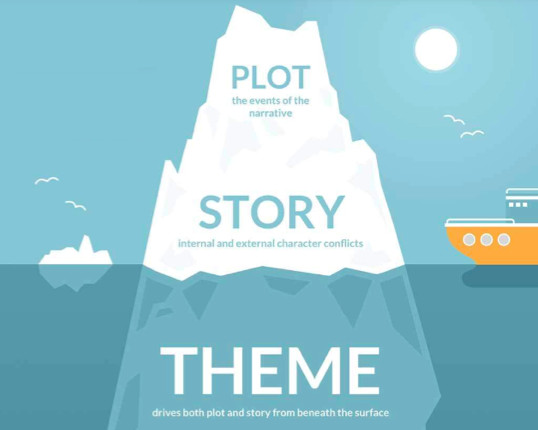
Many writers believe that the key to writing an amazing book is style: impressive vocabulary, elaborate sentences, figurative language that would make Shakespeare swoon.
We're here to dissuade you of that notion. While style is great (as long as your prose doesn't start to become purple), substance is far more important when writing a book — hence why you should focus primarily on your plot, characters, conflict(s), and themes.
Make sure your book is all killer, no filler
Of course, that's easier said than done, especially once you've already started working on your book. When you get to a patchily outlined section, it's tempting to keep writing and fill out the page with literary gymnastics. But that's exactly what this content is: filler. And if you have too much of it, readers will become frustrated and start to think you're pretentious.
This is another reason why outlining is so important. You need to KNOW your story in order to stay on track with it! But besides outlining, here are a few more tips for making substance a priority:
- Every sentence must do one of two things — reveal character or advance the action. This advice comes straight from Kurt Vonnegut, and it's 100% true: if a sentence doesn't accomplish one or both of those things, try removing it. If the passage still makes sense, leave it out.
- Be conscious of your pacing. Slow pacing is a symptom of excess description. If the events of your book seem to move like molasses, you're probably using too much style and not enough substance.
- Use a writing tool to reduce flowery language. Speaking of great American novelists, Hemingway is a fantastic tool to help you write like the man himself! Simply paste your writing into the app and Hemingway will suggest ways to make your prose more concise and effective.
Keep readers in mind while writing
Do you want to be the author of a novel that people will really enjoy (and buy)? Well, this is pretty much the cardinal rule: you should always be thinking about your audience and trying to write “reader-first.”
For example, sometimes you'll have to write scenes that aren't very exciting, but that serve the overall story arc. Don't rush through these scenes just to get them over with! Even if they don't seem interesting to you, they contribute to the reader's experience by building tension and preserving the pacing — and the reader deserves to relish those things.
Create 'fake' people who will want to read your book
When considering your readership, you should also keep a proto-persona in mind for marketing purposes. These are constructed personalities that marketers use to better understand their target customers. The more your book can cater to this hypothetical reader, the easier it will be to sell!
Maybe you're writing a true-crime account for zealous true crime readers. Such readers will have pored over countless criminal cases before, so you need to include unique details to make your case stand out, and craft an extra-compelling narrative to engage them.
6. Set a schedule with achievable goals

Let's move on to practical ways that you can improve your writing habits. Word count goals play a huge part in creating an effective writing process, especially if you're trying to finish your book in a certain amount of time.
Q: What daily writing routines can help authors maintain consistent productivity?
Suggested answer
+ Never underestimate the power of enough sleep. This can cure more things than we know - how we show up, what we're capable of tackling each day.
+ Nourishing food to fuel the mind.
+ Movement - even if it's a walk around the block listening to a podcast, music or just deep in thought (often the best times when ideas arise).
After these three things are locked in:
+ Quiet, undistracted time blocks (even if it means phone in another room for 90 mins)
+ A laptop that has nothing else except Word on it (no website access).
+ For those who are visual, keeping a yellow sticky note daily "checklist" on a wall, to encourage a daily writing tally.
+ Ask for feedback for continual improvement.
Leoni is available to hire on Reedsy ⏺
There are four things that I consider before settling in to write.
What sounds are there? The best is silence, but in a city environment this is impossible. If there are specific loud that I want to block out, I listen to drone music. This consists mostly of long, sustained notes (no melodies) and comes from the American and German post-war experimental musical traditions. The texture of the sounds is often rich which works for this purpose quite well. It has a meditative effect. Failing this, music without lyrics is also good.
What is my phone doing? Just switch it off.
Social media. Along with my phone, this is designed to distract. What I do is log out of my social media accounts. If I automatically go back in, I'm then met by the login page. This doesn't sound like much of a difference, but is just enough to nudge myself into becoming mindful of what I'm doing and what my present purpose it. And mindfulness is key.
Lastly, I take a page of Hemingway's advice: "The first draft of anything is s**t." It's ok to produce bad writing. In fact, it's totally ok; actually it's great. Why? Because my ideas are now down on the page, even if it's absolutely horrible. Nobody ever simply writes a finished product straight off the bat. I'll make it better later and that is a different process.
Don is available to hire on Reedsy ⏺
Get all domestic and admin chores out the way first, so that there is nothing else on your mind when you sit down to write. Then just stick at it for as long as possible.
Andrew is available to hire on Reedsy ⏺
You should create word count goals for both your individual sessions and per week — or per month, if that's how you prefer to think about your writing output. For relatively novice writers, we'd recommend the following word count goals:
- 500-750 words per day
- 1,500-2,500 words per week
- 6,000-10,000 words per month
These goals are based on a pattern of 3-4 sessions per week, which is reasonable for a beginner, but still enough to make commendable progress. Even if you only follow our minimum recommendations — 500 words per session at 3 sessions per week — you can still easily finish your book in less than a year!
Speeding up the writing process
If you're looking for how to write a book as fast as possible, your word count goals should look a little more like this:
- 1,500-2,000 words per session
- 9,000-15,000 words per week
- 35,000-50,000 words per month
The figures above adhere roughly to NaNoWriMo, the event in which participants write an average of 1,667 words/day to complete a 50,000-word book in one month. It's hard work, but it's definitely possible to write a book that quickly; hundreds of thousands of people do so every year!
But as any author who's done NaNo can attest, it's also a pretty grueling experience. Most authors find it exhausting to write such great quantities for so many days in a row — and they still have to revise copiously once they're done.
Q: What essential physical tools or items should writers always have on hand to help with the writing process?
Suggested answer
As an editor and a writer, the physical items I’ve carried with me have changed over the years. Back when I was a 90s teen, I always had a small notebook and pen in my car, purse, or backpack to jot down lines. I also almost always carried a physical book with me—what I was reading in school or for fun at home. Whether it was Great Expectations or The Mirror of Her Dreams, a book on the go filled the void and loneliness of the pauses in my teen life. The book I carried with me also gave me joy and energized me to do my own writing later when I was at home alone, listening to Spin Doctors or Jewel on my clunky CD-tape player.
Nowadays, a smartphone can do a lot for you and me if we let it. The Notes app on iPhones or other writing apps on Androids are great for taking down any poetic lines or other plot aha moments you might have while out with friends or coworkers or running around town getting errands done. As a mom, I often have to wait for my kids to get out of school or classes, so I read a book I’ve downloaded or an article on Substack on my phone to pass the time. (I also just scroll endlessly sometimes. Both things are totally fine!) The same can be done if you’re working nine-to-five and biding your time for a meeting to start.
If inspiration strikes, jot down what you’re thinking to get it out of your head before the bell rings or the meeting starts and life revs up again, the precious idea lost to cleaning out lunchboxes or putting out fires at your job.
If you’re having trouble using your phone as a writer’s tool, delete all your social media apps for a week, and see if it goes better. Do you find yourself writing more and scrolling less? Did you already try that and it not work? Then try to follow more writers on social media for inspiration. Even seeing writers’ day-to-day lives can be inspiring. What did they do yesterday? What shoes did they just buy? Sometimes even little things can motivate you to be in writer-mode.
Also, snacks. Never forget the snacks.
Sandra is available to hire on Reedsy ⏺
I'm a huge proponent of staying hydrated, so I will always recommend water. It's a great tool to give your brain space to think, too. Stuck? Take a sip of water. Finished a difficult line? Take a sip of water. Feeling achy after sitting too long? Take a sip of water.
Samantha is available to hire on Reedsy ⏺
A pocket notebook and pen or pencil. You never know when an idea will come around, or you suddenly figure out a solution to a writing problem. I keep one on me all the time, even if I'm sitting at my computer, because sometimes in the time it takes to decide what app/document to open, the thought will just vanish. It also gives me a chance to think visually, which is how I often work through things: mind-maps, doodles, sketches, and other ways of expressing myself that are not always easy to pull off with a keyboard.
And they're handy for impromptu to-do or shopping lists to boot!
Marisa is available to hire on Reedsy ⏺
Your smartphone! The quickest way to make sure you don't forget an idea is to record a voice note – save yourself the scramble for a pen and paper. Snapshots of places, scenes, details, and skies that inspire you are great for reference too.
Mairi is available to hire on Reedsy ⏺
A notepad or a phone as a way of taking verbal or written notes for ideas as they arise.
Melody is available to hire on Reedsy ⏺
I'm a sucker for a good pocket notebook. You never know when inspiration will strike, and while phone are great (and another note-taking device that works wonders) I've always found that physically writing something down helps the ideas flow more.
Sean is available to hire on Reedsy ⏺
Pen and paper if you're old-school.
Laptop (or in a pinch, smartphone) if you're new-school.
Coffee if you drink coffee; tea if you drink tea.
And when the words just aren't coming, access to whiskey and rum. 😉
Brett is available to hire on Reedsy ⏺
If this is your first book, make sure you take your time, set manageable word goals, and gradually build to bigger goals.
Use writing sessions to establish a schedule
Having a healthy writing routine is the only way you'll actually hit those word count goals — not to mention it fosters a better relationship with writing overall! To establish a healthy routine, ask yourself these baseline questions first:
- When do I have the most free time in the day/week?
- What time of the day do I tend to be most productive?
- How can I space out my writing sessions effectively?
- Will I realistically be able to balance my writing goals with other responsibilities?
The best way to set up your routine is to take advantage of your pre-existing schedule and natural patterns. So for example, if you already go to the gym on Tuesdays and Thursdays, perhaps the best time to write would be on Mondays, Wednesdays, and Fridays. Or if you find yourself most creative late at night (many of us do!), you can plan late-night sessions over the weekend/before your day off, so you can sleep in the next day.
Ultimately, you just want a well-balanced writing routine that facilitates productivity, yet keeps you from burning out. If you find that writing for several days in a row is too much for you, space out your sessions more or try to shake things up by moving to a new writing space. If you can't keep up with your goals, it's okay to reduce them a little.
Q: What are the most important habits for new writers to develop?
Suggested answer
You want to become a habit writer. That means writing daily or having set times each week set apart for writing and then keeping that appointment with yourself to write during that time, barring an emergency. One way to do this is to set a special area to write where you cannot be disturbed, go to a coffee shop or library to write, or write with a buddy in your critique group so you can both motivate each other to keep going. NaNoWriMo [National Novel Writing Month] is a great group to join during November for this sort of group motivation.
You also want to continue reading books in your genre and continue learning how strong writers write.
Getting used to receiving feedback is also a good idea. If possible, join a writing club or critique group in your area or online. Attend writing workshops at your local libraries. We all have strengths and weaknesses, and receiving feedback from peers and editors will help us to realize what these are, so we can keep improving.
Melody is available to hire on Reedsy ⏺
Yes, writing a lot is important, but it's not more important than your mental health! Remember that writing a book is a marathon, not a sprint, and that a consistent, healthy approach is absolutely vital. Here are some tips for making the most of your writing routine.
Don't skip more than one session in a row
Life happens, and sometimes you won't be able to make a planned writing session. However, unless it's a serious emergency, you should try to get back in the saddle for your next session. Otherwise, you'll lose too much progress and feel discouraged, which typically leads to skipping even more writing sessions, and eventually giving up.
Track your progress
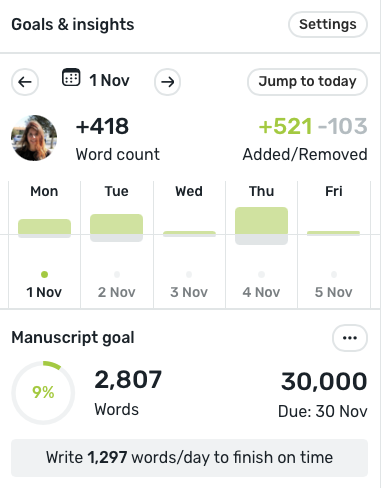
With our free writing app, Reedsy Studio, you'll see the numbers update automatically depending on your activity: you'll see how many words you added and deleted on any given day. Depending on the overall goal you set for your manuscript, you'll also see your daily targets adjust depending on how much you've written so far.
Use a site blocker to stay focused
Distraction is the enemy of routine, and the biggest distraction in our modern world is the Internet. To that end, download a site-and-app blocker to use during your writing sessions so you won't be enticed by social media or adorable cat memes. We'd recommend Freedom, as you can schedule block sessions in advance and even keep track of your productivity within the app.

FREE COURSE
How to Build a Solid Writing Routine
In 10 days, learn to change your habits to support your writing.
7. Find a good writing space
Another major component of how to write a book is where you write, hence why it gets a separate section. If you want to complete an entire book, you absolutely must find a calm, focused space for your writing.
This may be in your house, a coffee shop, a library, a co-working space — wherever you can work productively and without interruptions. It should also be a place that you can access easily and go often. Working from home is the most convenient option in this sense, but it may be difficult if you have family around, or if you don't have a designated “room of one's own” (i.e. an actual office, or at least a desk).
What does a good writing space look like?
Try out different locations to see what works for you. Indeed, you may find that you like to rotate writing spaces because it keeps you energetic and your writing fresh! But wherever you go, do your best to make the space:
- Quiet (noise-canceling headphones can be very helpful)
- Clean (no clutter, especially if you do chores to procrastinate)
- Non-distracting (nothing too fun around to tempt you away from writing; turn off your phone so other people won't bother you)
- Your own (cultivate a nice atmosphere in your home office with posters and plants, or simply take the same seat at your local café every time — truly carve out a “dedicated writing space”)
8. Pick a "distraction-free" writing software
We've already talked about a few different pieces of software to help you with writing a book. But if you haven't found the right app or program yet, never fear — there's plenty more where those came from!
Q: What tools or apps actually make a difference in streamlining the writing process?
Suggested answer
Today we have a plethora of excellent software programs for writing, such as Reedsy Studio, Scrivener, and Grammarly. Some writers use ChatGPT, although I would not recommend using an AI generative language model to help writing. This is because it bypasses the process altogether, replacing the writer. What would be the point of that?
Even the oldest and best-known program, Microsoft Word is still excellent. But there is one older – far older – trick to helping the writing process. This is articulating your writing ideas out load. I'm sorry if it sounds mundane and less flashy!
It is surprising how difficult this can be sometimes. Often, a writer will have an idea or set of ideas but having never explained them aloud, might struggle with clarity at the detailed level. When reading over their work, they are reminded of the ideas; the writer is not merely reading here, they are remembering things that are not on the page!
So, trying to explain it to someone who does not know these ideas is crucial. This is why critique groups are an excellent way of improving one's writing. Often – after a deep explanation and perhaps some questions back and forth – I have heard the friend or other writer say, "ok, well write what you've just said!"
Don is available to hire on Reedsy ⏺
Book writing software is a topic we've actually written an entire post about, but it's worth touching on a few of our favorite writing tools here:
Scrivener 🖋️
Scrivener is the downloadable writing software of choice for many writers, and for good reason: it has an exceptional interface and tons of useful features. You can outline chapters with its drag-and-drop system, create labels for elements you want to track, and use various templates to plan AND format your book. If you want to feel like a true professional, you can't go wrong with Scrivener — and it's even free to try for 30 days.
Milanote 💭
Or if you're not much for outlines because your thoughts are all over the place, Milanote can help. The super-flexible interface allows you to “mind map” just as you would longhand, and rearrange different sections as you please. When writing, you can see all your notes at once, so you don't have to stress about forgetting things. It's a very refreshing, intuitive way approach that's worth a try for all disorganized authors.
FocusWriter ✍️
Speaking of intuitive, what's more intuitive than simply writing on a piece of paper, no distractions — just like the old days? Meet FocusWriter, which allows you to do exactly that. The full-screen default interface is a sheet of paper on a wooden desk: no bells, no whistles, no distractions whatsoever. Seriously, this one will get you in the zone.
Reedsy Studio 📖
We couldn't leave out one of the coolest word processing, editing, and formatting tools on the market! All jokes aside, Reedsy Studio lets you cleanly format your book as you go, so you can watch it take shape in real-time. You can also add sections for front matter and back matter and invite collaborators to edit your text. Plus you can toggle on goal reminders to make sure that you're on track with your writing schedule. Once you finish writing, you can export the files of your book. But don't take our word for it: you can try Reedsy Studio for free right here.

FREE WRITING APP
Reedsy Studio
Set goals, track progress, and establish your writing routine in our free app.
9. Finish your draft

Getting into the groove of writing a book can be difficult. When there are a million different things to distract and discourage you, how can you keep going with your writing routine and finish your book?
Q: What is the 'saggy middle' in storytelling, and how do I fix it?
Suggested answer
A 'saggy middle' occurs when a story loses momentum, tension, and trajectory right around the midpoint of the story. A story can lose it's steam (and with it, a reader's interest) when character arcs stall, plots become muddled and messy, and subplots abound with no sense of direction. Stories can also sag if they fill pages with descriptive information that does little to engage the characters or further the story arc.
But never fear! This is a very fixable problem. First, think about the ideas at the heart of your story. What story do you want to tell? What lies at its core?
With that in mind, review the midsection of your story with an eye to the issues described above. Once you identify your problem areas, you can set about rewriting with a goal of increasing the tension by increasing the stakes for your characters, adding new conflicts/problems for characters to explore, cutting excess descriptions and sections that over-explain character motivations/backgrounds/actions, and tightening sections that do little to further the core plot that drives the story.
Erin is available to hire on Reedsy ⏺
I tend to see saggy middles show up when authors are adhereing to a strick timeline of events, rather than sharing scenes that pull the plot forward. For example, I edit a lot of middle grade fiction and a saggy middle might include multiple chapters that open with the protagonist waking up and close with the protagonist going to bed. Or going to school, then getting home after. Readers don't need the day-by-day minutia to get from one scene to the next.
Instead, focus on what will pull your plot forward, and think of your middle as scenes rather than a timeline that gets you from point A to point B.
I usually suggest that authors step away from the manuscript and instead write scenes, even if out of order, that they need for their story to make sense. When finished, they can line them up in order, and then fill in the blanks for a much faster-paced and cohesive middle. Even if you don't have a saggy middle, this is an effective practice for planning and plotting purposes.
Jenny is available to hire on Reedsy ⏺
The 'saggy middle' of a story is the part of the story where the inciting incident - or the problem in the story - has already happened, but the ending, or climax and resolution, is nowhere in sight. It really does fall in the middle of the story.
There are several ways to handle this issue:
*Use a subplot with the main character or a secondary character that will still need its own resolution and will bring in another layer of trouble for your character[s]. In The Wizard of Oz, each of Dorothy's three friends suddenly has their own problems. The scarecrow loses his stuffing, for instance, so the storyline shifts for a bit from Dorothy's desire to get back to Kansas - her hero's journey and the through line of the book - and takes a slight turn to focus on the scarecrow and friends before turning back to Dorothy's main plot line again of getting home.
*Raise the stakes - create even more trouble for your character and/or make the result[s] of the trouble even more dire. In the book, Harry Potter and the Chamber of Secrets, first, Mrs. Morris the cat is sent to the hospital, then humans that are Harry's friends, then finally, Ginny is in trouble, who will end up being Harry's love interest. So the stakes and problems keep building all the way through the book until the final climactic scene.
*Use what is called a 'midpoint reversal': This is where the character changes his mind about the issue and is not opposed to it any longer. In the movie "Tootsie", at first, Michael does not want to pretend to be a woman to get work, but by the middle, he loves the idea of pretending to be a woman and wants to take things even further, which causes friction between Michael and his agent. So more trouble occurs because of this mindset reversal, which then leads the book to its satisfying conclusion.
You don't have to use all of these techniques, but try one out in the middle of your book, and see which one works best for your own story.
Melody is available to hire on Reedsy ⏺
Based on ours and other writers' experience, here are a few motivational strategies for you to try:
- Make a list of reasons why you want to write a book. Having a tangible reminder of your true purpose is one of the best ways to motivate yourself, so think hard: Do you want to send an important message? Reach a certain group of people? Or do you simply yearn to tell this particular story? Write down all your reasons and keep them as an ace in the hole for when your motivation dwindles.
- Find someone else to write with you. Getting a writing buddy is another great way to stay motivated! For one thing, you get some camaraderie during this process; for another, it means you can't slack off too much. So ask your writer friends if they'd like to meet up regularly, or join a community of authors online. With the latter, just make sure you exchange progress updates and proof that you're actually writing!
- Reward yourself at important milestones. Sometimes the best motivation is the prospect of treating yourself. If you respond well to this kind of motivation, set a goal, a deadline, and a reward for meeting it: “If I can write 10,000 more words by the end of the month, I'll go out for an amazing, fancy dinner with all my friends.” This kind of goal is also helpful because you can tell your friends about it, and that very act will hold you accountable.
For even more advice on how to staying motivated through the writing process, check out this Reedsy Live from author and writing coach Kevin Johns!
Don't give up
Remember how we said you'd inevitably get stuck? Well, that's what this step is all about: what to do when you hit a wall. Whether it's a tricky plot hole, an onslaught of insecurity, or a simple lack of desire to write, all writers experience setbacks from time to time.
There are countless ways to overcome writer's block, from freewriting to working on your characters to taking a shower (yes, that's a legitimate tip!). However, here are some of the most effective techniques we've found:
- Revisit your outline. This will jog your memory as to planned story elements you've forgotten — which may help you find the missing piece.
- Try writing exercises. It's possible you just need to get the words flowing, and then you can jump get right back into your book. Luckily for you, we have a whole host of great writing exercises right here!
- Share your experience with friends. This is another great role for your writing buddy to fill, but you can easily talk about writer's block with your non-writing friends, too. If you're struggling, it always helps to vent and bounce ideas off other people.
- Take a short break to do something else. Yes, sometimes you need to step away from the keyboard and clear your head. But don't take more than a day or so, or else you'll lose momentum and motivation.
Most of all, remember to take setbacks in stride and not let them get you down. As platitudinous as that might sound, it's true: the only thing that can stop you from writing a book is if you, well, stop writing. So keep calm and carry on — every day brings new opportunities and you'll get through this.
Your aim at this point is not to emerge with an instant masterpiece. The quality almost always emerges in the edit.
10. Edit the manuscript

You can write all day, all night, to your heart's content... but if no one else likes what you've written, you might end up heartbroken instead. That's why it's crucial to request feedback on your book, starting early and from as many sources as possible.
Begin by asking your friends and fellow writers to read just a few chapters at a time. However, apply their suggestions not only to those chapters, but wherever relevant. For example, if one of your friends says, “[Character A] is acting weird in this scene,” pay extra attention to that character to ensure you haven't misrepresented them anywhere else.
Once your book is finished, you're ready for some more intensive feedback. Consider getting a beta reader to review your entire book and provide their thoughts. You may want to hire an editor to give you professional feedback as well. (Find out about the different types of editing, and which type your book might need, in this post.)
Finally, it might sound obvious, but we'll say it anyway for all you stubborn writers out there: feedback is useless if you don't actually listen to it. Separate yourself from your ego and don't take anything personally, because no one wants to offend you — they're just trying to help.
11. Publish your book for readers to buy
You’ve persevered to the end at last: brainstormed, outlined, and written a draft that you've edited extensively (based on feedback, of course). Your book has taken its final form, and you couldn’t be prouder. So what comes next?
Well, if you’ve taken our advice about catering to your target readers, you may as well give publishing a shot! We have a full guide to publishing right here — and if you’re thinking about traditional publishing, read this article to decide which is right for you.
Get help from publishing professionals
Publishing is another rigorous process, of course. But if you’ve come this far to find out how to write a book, you can pretty much do anything! Invest in stellar cover design for your book, study up on marketing for your book, or start writing an irresistible query letter that will get you an offer.
Q: How do you decide which projects to take on?
Suggested answer
Okay, I'm going to pull back the curtain on this one: I test prospective clients.
In our initial discussions, I ask a lot of questions, and with a dual goal:
- To get more information and help focus on how, if at all, I can help.
- To find out how much a writer is willing to share their thoughts and goals. Some just can't seem to be bothered to answer questions about their goals; they just seem to want what they want. I can't help these people.
There's a cliché adage that's never lost its potency: you can lead a horse to water, but you can't make him drink.
That is so true for writers who don't know what they're doing, but insist on controlling the narrative.
I help the writers who want and need it.
And there's a twist to that last sentence: some writers don't need the help they think they want, and we discuss this at length. A really good writer (and that is the most important qualification) may be looking for validation from me, but the best validation comes from the literary agent who thinks she/he can sell the book and/or the publisher who agrees to buy the book.
Others writers might simply need somebody more appropriate than me, and I share my reasons for encouraging them to look elsewhere.
In short, I only take on clients I think I can help.
Lee is available to hire on Reedsy ⏺
I always choose projects that are aligned with my editorial experience. It's very important that I feel I can provide a good service for authors and to give them useful and constructive feedback, so sometimes, even though I'm really exicted about a book, I know it's not the right fit for me and I decline the work. I am always excited to hear about new projects, and I love it when an author's passion and talent are clear in their brief.
Alice is available to hire on Reedsy ⏺
You might be surprised to know that the quality of writing and the story/character plots are sometimes secondary to my "read" of a writer's personality. I prefer working on a project that needs considerable work, and with a writer who's open to working with me, than a brilliantly written book and an author who's ego is wrapped around it... and ultimately resists any suggestions re: edits/revisions. For me, editing, like writing, is hard work... and joyful. When that joy is quashed, it becomes a labor... rather than a labor of love!
Victoria is available to hire on Reedsy ⏺
I try to take on projects similar to books I have already worked on and in genres I am very familiar with. I truly want to be able to help authors improve their work, so if I can read a sample and see areas where my input will be helpful, I try to take on these projects.
Also, yes, if a writing sample or genre really piques my interest, I am going to be eager to work on that book.
Melody is available to hire on Reedsy ⏺
I take on projects that line up with my expertise, availability, and interests. I’m drawn to books that offer a unique topic or a fresh approach. A clearly defined audience is a must. Add in an enthusiastic author with a vision and I’m raring to get started.
Daniel j. is available to hire on Reedsy ⏺
I look for projects where I can see an excellent, collaborative relationship developing with the writer, and where I'm genuinely curious about the subject they're writing on.
When I look at the initial brief and start to chat with a writer, big green flags include:
- A writer whose sample is clearly ready for the type of editing they're requesting. If they've asked for proofreading when the book clearly needs a line edit first, I steer clear.
- A writer who understands what the book still needs and the gaps they can't fill on their own. If they're not going to be open to feedback or they're getting proofreading to jump through a hoop, I'd reconsider the project. A sample edit is a good test here.
- A writer who can appreciate the number of hours that go into editing and has a budget that can give me the time to do a great job. I like to focus on one book at a time and I like to feel like I'm really bringing something to the table, so requests to rush jobs or cut corners are a big "no" from me.
Because I work with a lot of memoirs, another major consideration is professional distance. If I can see that the writer's experience is too close to my own, I send a heartfelt message asking them to look for another editor, I don't want to be working on someone else's story while my own experience is rising to the surface. If their project sounded incredible, I'll make a note to buy it when it's released and enjoy it as a reader instead.
Mairi is available to hire on Reedsy ⏺
Whichever route you take, one thing will remain true: you’ve written a book, and that’s an incredible achievement. Welcome to the 0.1% — and may the next book you write be even greater than the first. 📖





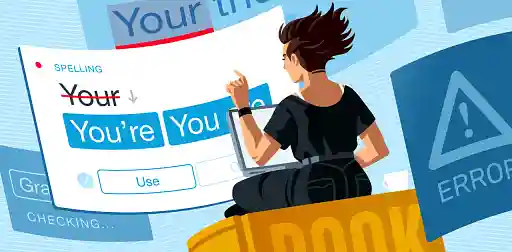


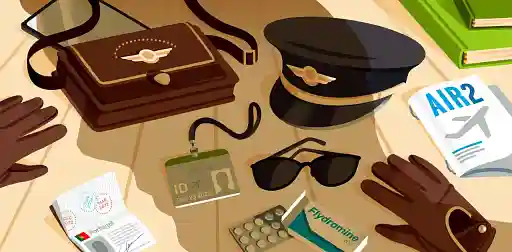


1 response
aboe says:
13/12/2019 – 15:33
thank you for helping me find a new way to write my book